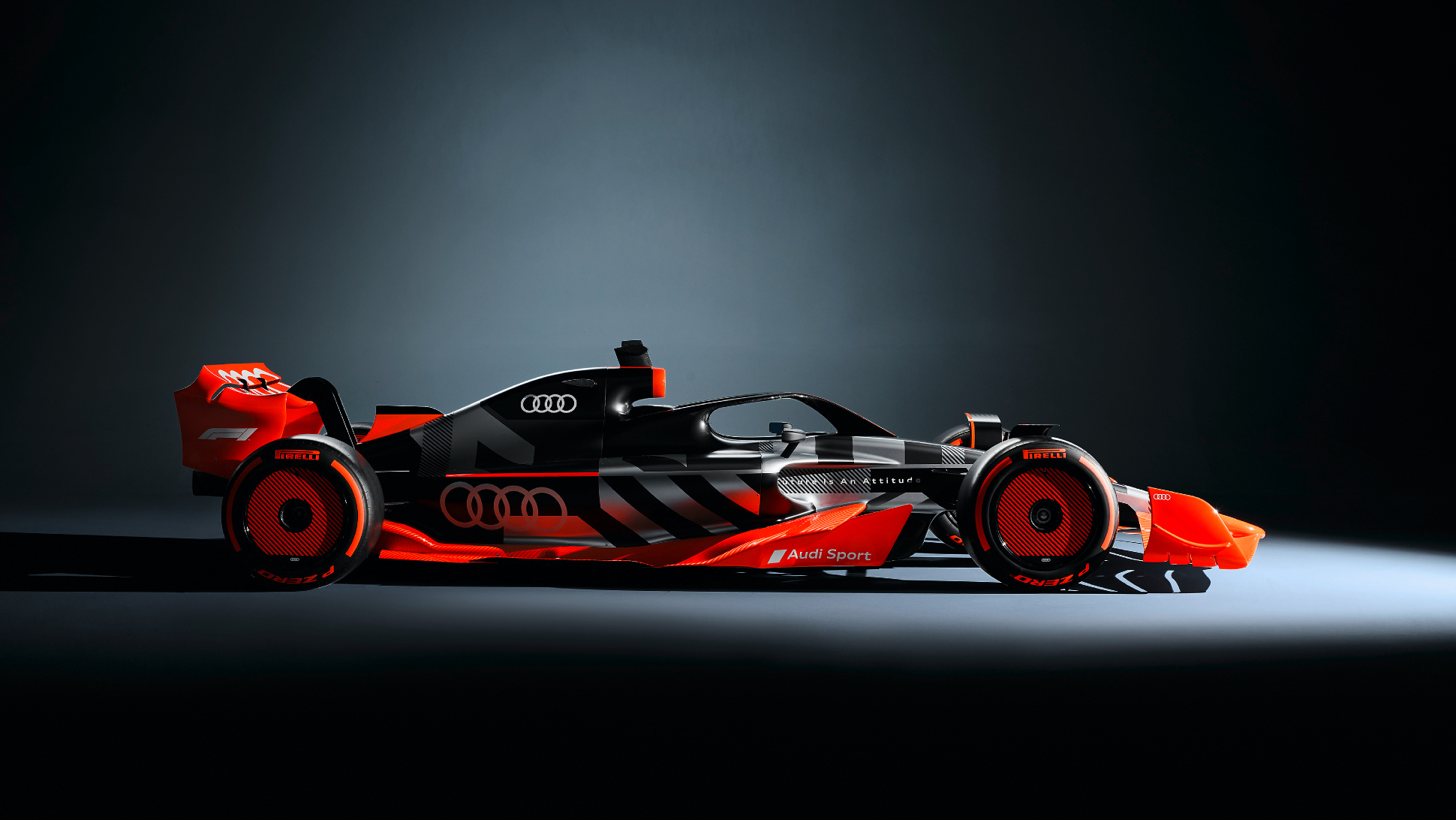

A new manufacturer is coming to Formula 1 in 2026 and—go figure—it’s Audi. The company confirmed its plans to join the grid with its own hybrid power unit at the Belgium Grand Prix on Friday. The team will be based out of the Audi Sport facility in Neuberg an der Donau, Germany, which will make this the first F1 powertrain built in the country in over a decade.
Audi confirmed that it will partner up with an existing team on the grid, but we don’t know who it will be just yet. That announcement is coming by the end of the year, but there is one clear long-timer in the series that’s open to offers: Sauber. Alfa Romeo announced that it was ending its partnership with Sauber by the end of 2023 just hours after the Audi F1 announcement was made, as Carscoops reports.

Audi chairman Markus Duesmann also made it clear that its entry will be completely separate from Porsche’s F1 team, which hasn’t been officially announced yet, though it will almost certainly partner up with Red Bull.
“We raced Porsche in Le Mans with completely separate operations,” Duesmann told the press, as quoted by RaceFans. “And in this case as well, we will have completely separate operations. We will have our operations in Germany and, if Porsche enters, they will have their operations in the U.K.–completely separate.”
“The powertrain has to be designed especially for the chassis and that’s why we decided to split it, because we will have completely different chassis and so completely different powertrains,” Duesmann continued.



The company is already beefing up Audi Sport’s facilities in Neuberg, near the main Audi AG headquarters in Ingolstadt. There, it has testing equipment in place for F1 engines, electric motors, and batteries; a separate company has even been set up for its power unit program. Audi says it’s on target to get personnel and infrastructure in place for its F1 operations by the end of this year.
As then-Volkswagen Group CEO Herbert Diess made clear earlier this year, F1’s revised technical rules were a significant reason why Audi and Porsche are joining in. The 2026 rule set focuses more on electrification and the use of sustainable fuels, with the series bumping up the output of the electric motor to nearly equal that of the 544-horsepower 1.6-liter turbo V6. Plus, a cost cap for power unit manufacturers being introduced in 2023 should make F1 more affordable for new suppliers like Audi to join in.





Formula 1 is more popular than ever in key markets for Audi like the United States and China, which Audi credits alongside F1’s sustainability goals as being a major reason to join in now. If you want people to see your company in a new light, F1’s an expensive way to do it, but the bang-for-your-billions is there if you can do it well. While the company certainly won’t call this out by name, F1’s stated goal of achieving carbon neutrality by 2030 also fits right in line with the post-Dieselgate need to move on from the fact that Audi’s last highly visible streak of motorsport dominance used diesel-powered Le Mans cars.
Audi also confirmed Friday that it had discontinued its LMDh endurance racing project to focus on joining F1 instead.
Got a tip? Email the author: stef@thedrive.com